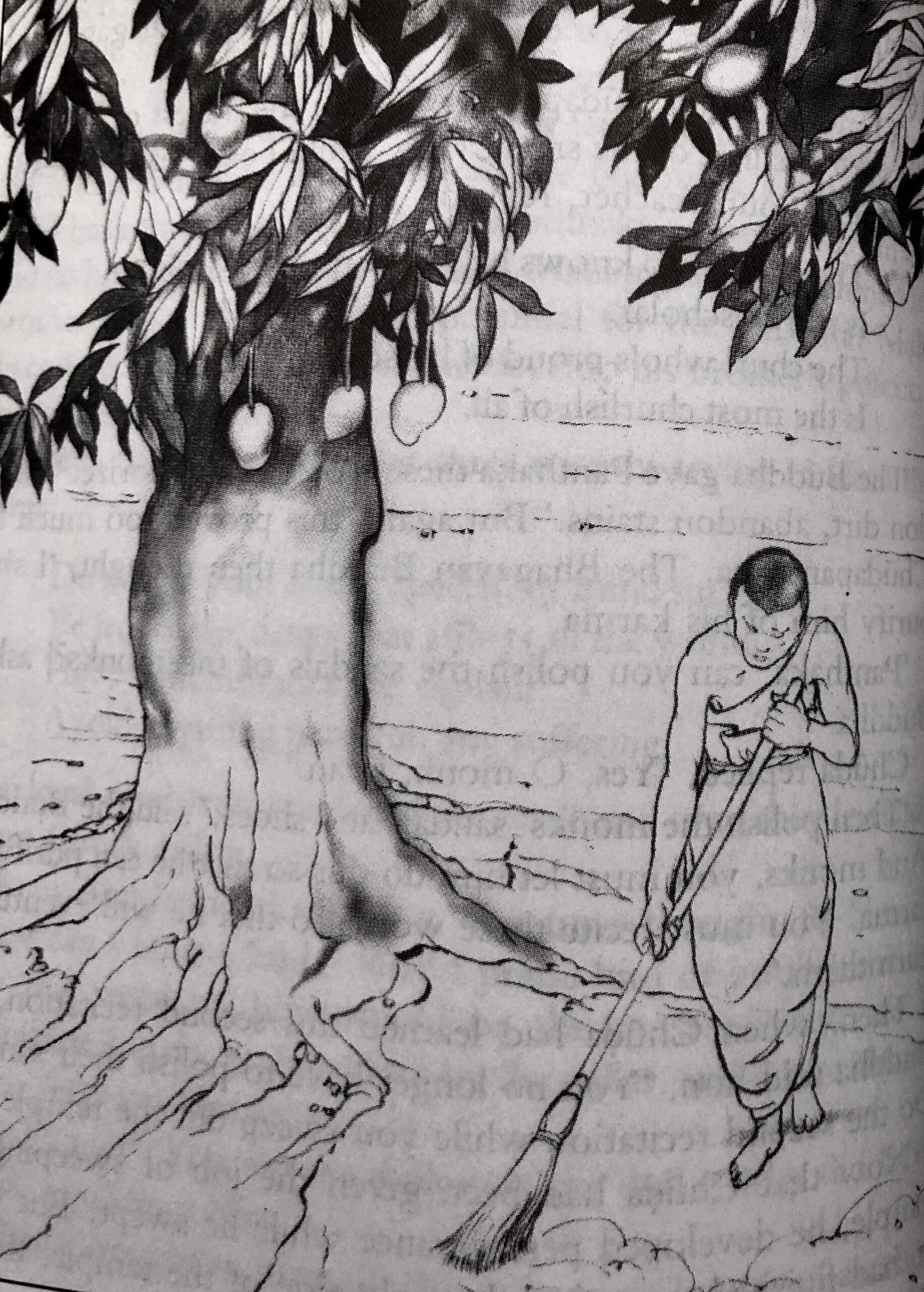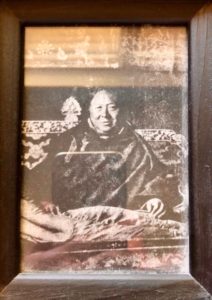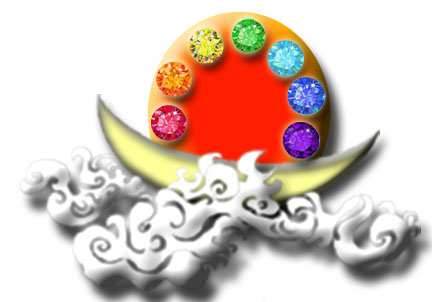
In our class Sunday, one of the students reminded us of the story of Chudapanthaka who reached enlightenment by chanting four words and sweeping out the mango grove where Shakyamuni and the monks lived. It is an excellent example of how Shakyamuni Buddha uses skillful means to enable his students to become accomplished and one that has meaning for all of us.
The Story of Chudapanthaka
Chudapanthaka was the son of a Brahmin and the younger son of Mahapanthaka, a great scholar and follower of Shakyamuni Buddha and an Arhat. His name meant Great Road while his younger brother’s name meant Small Road because Chuda had what we would call an extreme learning disability. Their history and reason for their names is interesting, but not essential for this story. When their parents died, Mahapanthaka decided he would ordain Chuda and teach him the Dharma. However, no matter how hard he tried he could not. If he learned the first word of a verse, he would forget it by the time he read the second. Finally, in desperation Maha threw Chuda out of the Jetavana Grove where they were living.
The Buddha saw the weeping and abandoned monk and out of great compassion decided to teach him. The Buddha gave Chuda these words to memorize: “Abandon dirt, abandon stains,” but again, this proved too much for Chuda. The Buddha then thought, I shall purify him of his karma and asked the little monk, “Panthaka, can you polish the sandals of the monks?”
Chuda replied, “Yes, O monk, I can.”
“Then polish the monks’ sandals and shoes,” said the Buddha, “and monks, you must let him do this so that he can purify his karma. You must recite these words so that he will eventually learn them.”
When Chuda had learned this recitation, the Buddha told him, “You no longer have to polish their sandals. Do the recitation while you sweep out the temple.”
Chuda did this with great perseverance while he swept. The story is a long and wonderful one and I will not give it all, but by chanting these verses and persisting, his karma and obscurations were purified. Then the thought came to him, “When the Buddha said, ‘Abandon dirt, abandon stains,’ did he mean internal or external dirt?” Then into his mind came three verses he had never heard before:
Here ‘dirt’ is attachment, not dirt.
“Dirt” is a name for attachment, not dirt.
Scholars reject this kind of dirt.
They scrupulously follow the Sugata’s teachings.
Here ‘dirt’ is hostility, not dirt.
‘Dirt’ is a name for hostility, not dirt.
Scholars reject this kind of dirt.
They scrupulously follow the Buddha’s teachings.
Here ‘dirt’ is benighted ignorance, not dirt…..

And so on. He tried to fathom these verses and through his meditations he achieved Arhatship.
Chudapanthaka is known as one of Shakyamuni Buddha’s sixteen main arhats. The story goes on and on. I urge you find it and read it. The photo and this version is from Pabongka Rinpoche’s Liberation in the Palm of Your Hand: A Concise Discourse on the Path to Enlightenment, but there are many variations. I believe this excellent book is available in both Chinese and Spanish.




Add comment